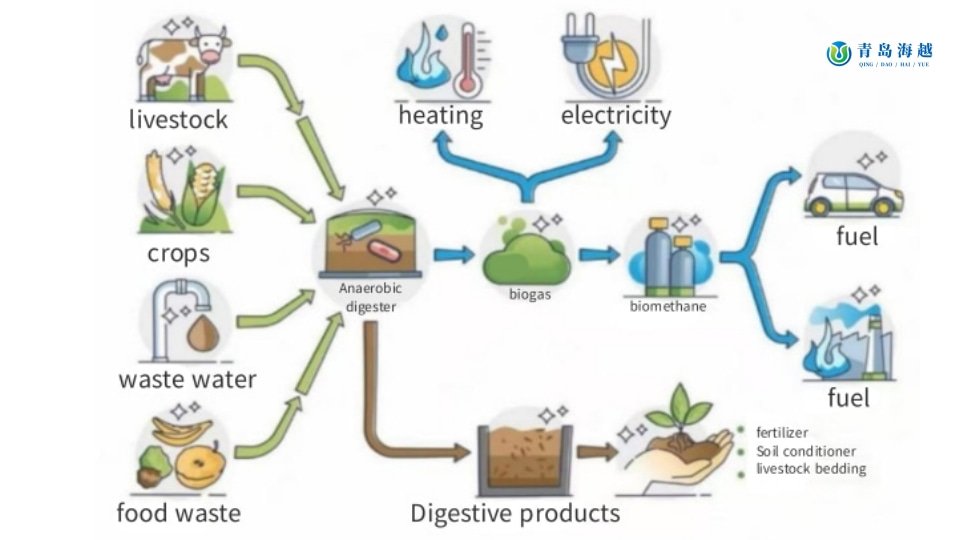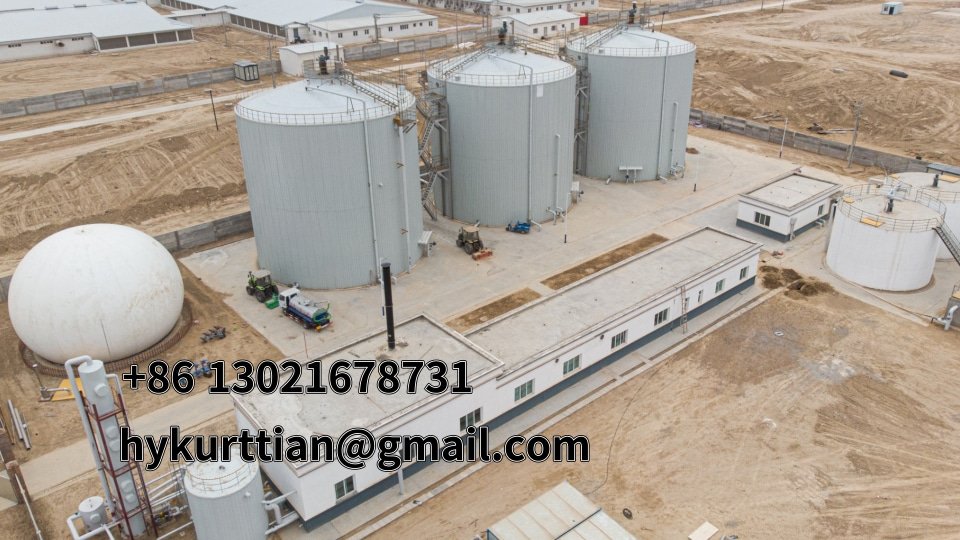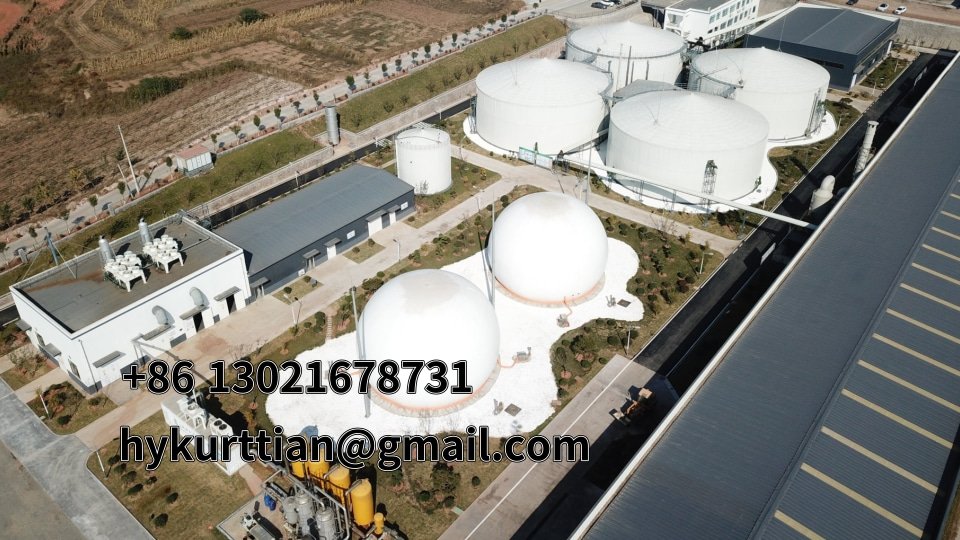Anaerobic fermentation: usable raw materials
Biodegradation refers to the process in which microorganisms, such as bacteria and fungi, break down organic matter into simpler components. This process is essential in nature, helping to recycle and regenerate nutrients within ecosystems.In waste management, biodegradation also plays a crucial role. It enables the breakdown of organic waste, reducing its volume and making it easier to handle and dispose of.
In sustainable waste management, the digester is the primary equipment used for biodegradation. It provides an optimal environment for microorganisms to accelerate the decomposition of organic waste.
So, what materials can be added to a digester? Let's find out.

A digester typically consists of the following key components:
Digestion Tank: Stores organic matter and provides an optimal environment for microorganisms to break it down.
Heating System: Maintains the appropriate temperature within the digestion tank to ensure optimal performance of the digestion process.
Mixing System: Stirs and circulates the contents of the tank to promote uniform degradation of organic matter.
Gas Collection System: Captures biogas produced during the anaerobic digestion process for further utilization.
Discharge System: Removes the digested substrate and sediments from the digestion tank to maintain system stability.
The efficiency of a digester is influenced by several factors, with temperature, pH levels, and the type and quantity of organic waste input being the most critical.
In most digesters, the optimal temperature range is 35°C to 40°C (95°F to 104°F), which facilitates efficient microbial decomposition of organic matter.
To ensure smooth operation of the digestion process, the pH level in an anaerobic digester should be maintained between 6.8 and 7.2.


The following organic materials are suitable for anaerobic digestion:
Food waste
Animal manure
Crop residue
Wastewater sludge
Additionally, the following waste types can also be used for anaerobic digestion:
Animal manure
Crop residue
Food waste
Dairy farm waste
Brewery and distillery waste
Agro-industrial waste

The following materials should not be added to the digester:
Plastics: Digesters cannot naturally break down plastics, and these materials can cause contamination.
Metals: Metals such as copper and aluminum should be avoided, as they can inhibit microbial activity, cause corrosion, and even create sparks or explosions, posing safety hazards.
Glass: Glass is fragile and can break, leading to safety risks.
Toxic Waste: Items such as batteries and chemical toxic waste can kill microorganisms and make the processed residue hazardous for agricultural applications.
Non-biodegradable Waste: Materials like synthetic fibers do not decompose and should not be added to the digester.
Let’s clear up some common misunderstandings about digesters.
Can all paper products be added? ❌
Some paper products, such as paper towels and cardboard, can be digested. However, glossy or coated paper, like magazine paper or photographs, should not be added to the digester.
Is all food waste suitable? ❌
Certain food waste, such as excessive fats or oils, bones, and shells, cannot be effectively broken down.
Can medications be digested? ❌
Disposing of pharmaceuticals in the digester can pose risks to human health and the environment. Instead, they should be properly disposed of through designated collection sites or responsible disposal methods.
Understanding what can and cannot be added to the digester is essential for its proper operation.
Improper use can lead to equipment damage, environmental pollution, and even health risks.
Following best practices not only enhances digestion efficiency and supports sustainable waste management but also promotes renewable energy production and reduces your carbon footprint.
For on-site commercial food waste-to-energy solutions, contact Haiyue to help your business and community move toward a more sustainable future.